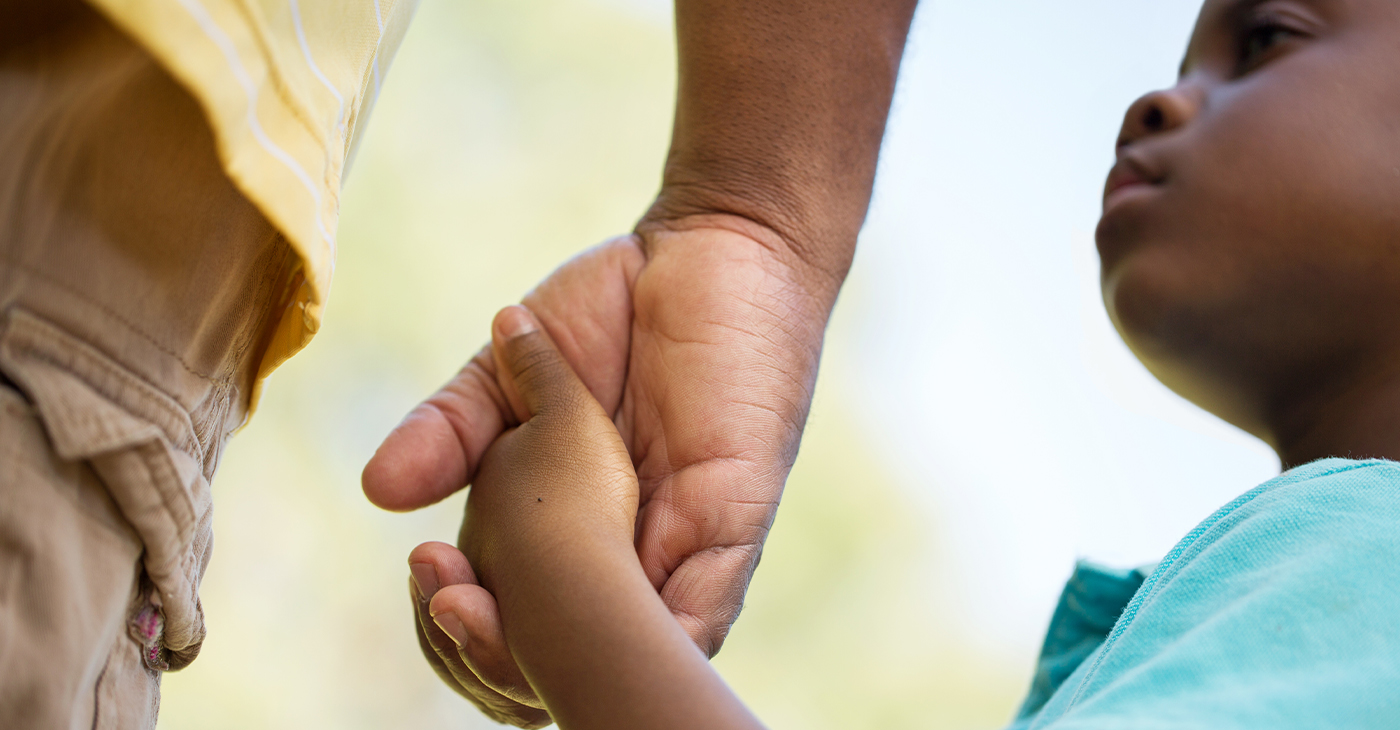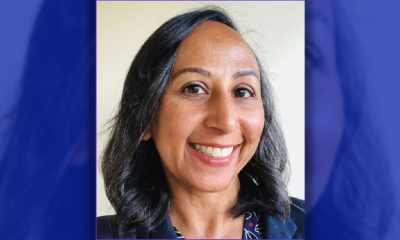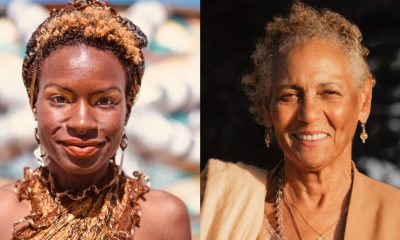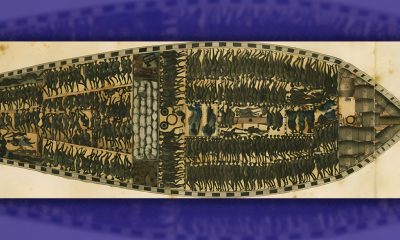Family
Congresswoman Gwen Moore Announces H.R. 2751 Mamas First Act to Provide Coverage for Doulas and Midwives
THE MADISON TIMES — Wisconsin’s black babies are dying at a faster rate compared to whites. Wisconsin has the highest gap between Black and white babies, according to CDC’s National Center for Health Statistics.
By Nyesha Stone
Wisconsin’s black babies are dying at a faster rate compared to whites. Wisconsin has the highest gap between Black and white babies, according to CDC’s National Center for Health Statistics.
In 2013 through 2015, Wisconsin had the highest infant mortality rate for infants born to Black women in the nation at 14.3 deaths per 1,000 babies. These numbers are alarming and a cry for help, so U.S. Rep. Gwen Moore created legislation to increase care.
Under the bill H.R. 2751, known as the Mamas First Act, doulas and midwives will be provided under Medicaid coverage. The hope is that this will positively impact the maternal health crisis.
Doulas are non-medical professionals that provide support during pregnancy, birth, and postpartum care. They assist in all reproduction aspects including support for women who are considering abortion. Midwives are clinical and experienced professional who practice the full scope of maternity care including delivering babies.
Providing resources to doulas and midwives such as access to funding, will increase their already huge impact on the Black and Hispanic mothers, who depend on doulas and midwives to have a successful pregnancy.
“We can have more babies to make it past the age of one,” said Moore on the statistic that a lot of Black infants don’t make it to their first birthday. “This legislation will have a real impact.”
President of DONA International, Ravae Sinclair, has been a doula for 17 years and she it feels good to know that others are beginning to understand what a doula is and their importance in the community.
“This momentum is incredible,” Sinclair said about the bill. She said every woman deserves the opportunity to a doula or midwife, and this bill will help make that happen.
According to Executive Director of African American Breastfeeding Network, Dalvery Blackwell, there is no greater investment than investing in our doulas and midwives. Along with Moore, Blackwell used doulas to help her through her pregnancy.
“My doula educated me on things I could do to enrich my birth,” said Blackwell. “She helped me to stay focused.”
Moore held a press conference to announce the bill at Sherman Phoenix earlier this week. She was accompanied by Sinclair, Blackwell, Mayor Tom Barrett, Lyanne Jordan, Co- Director of Doula Programming Maroon Calabash and Keetah Smith, Director of Community Clinical Linkages of UniteMKE.
This article originally appeared in The Madison Times.
Community
For Cervical Cancer Month, Medical Community Focused on Education
January was Cervical Cancer Awareness Month. Physicians, advocates and others in the medical community commemorated the month by raising awareness about a form of cancer they say is highly preventable and treatable. Cervical cancer is caused by a virus called the human papillomavirus (HPV) and it develops slowly over time but can be prevented with proper care in girls as young as 13 years old.

By Magaly Muñoz
January was Cervical Cancer Awareness Month.
Physicians, advocates and others in the medical community commemorated the month by raising awareness about a form of cancer they say is highly preventable and treatable.
Cervical cancer is caused by a virus called the human papillomavirus (HPV) and it develops slowly over time but can be prevented with proper care in girls as young as 13 years old.
Sonia Ordonez, an OBGYN and gynecology surgeon at Kaiser Permanente, stated that as soon as people with cervixes reach the maturity reproductive age, they should start taking preventative measures like getting the HPV vaccine. The vaccine involves a series of two-doses for people aged 9 through 14 or three-doses for people 15 through 45 years old.
“I see a lot of young women who can’t remember or may not have gotten [the vaccine] when they were younger, or maybe got one, but we can give them the series of vaccines and restart at any point in time,” Ordonez said.
She said that cervical cancer is not the only cancer caused by HPV. Strains of the virus can also lead to throat, anal and penile cancers.
Screening is also an effective way to check for cervical cancer and should be done every three years after someone turns 21, doctors recommend. It is best to start as early as possible to catch occurrences early.
Ordonez said that this cancer is also more likely found in people of color and has led to more deaths overall.
A Mayo Clinic article published last month stated that Black women are more likely to be diagnosed and die of cervical cancer, compared to White women in the U.S.
2,000 Black women are diagnosed every year with cervical cancer and 40% die as a result.
“This disparity is not due to genetic differences among White, Black or Hispanic women, but rather related to systemic racism, access to healthcare and socioeconomic factors,” Dr. Olivia Cardenas-Trowers, a Mayo Clinic urogynecologist, said in the article.
Ordonez stated that immigrant women are also highly susceptible to the cancer, as many Latin American countries may not have accessibility to screenings or lack of insurance makes it harder for them to get tested.
Hispanic women are 40% more likely to be diagnosed with cervical cancer, and 30% more likely to die from it, as compared to non-Hispanic White women, according to the Office of Minority Health.
Family medicine physician, Joy Anyanwu, stated that the pandemic contributed to hesitancy about getting cervical cancer screenings among some women. Other factors are people’s aversion to vaccines, parents not wanting to believe that their children are or will become sexually active, and doubt about the overall effectiveness of the vaccine.
“The vaccine is very safe — over 97% effective in preventing cervical cancer,” Anyanwu said. “Even if you aren’t having sex, the earlier you start would actually help.”
Anyanwu said she understands that parents might not want to ask questions about their children’s reproductive health, but it’s a mindset that can be a barrier to having important conversation about prevention or care.
To keep families their families and communties healthy, the doctor emphasized that people should prioritize keeping up with their vaccine series and going to screenings every year.
City Government
LAO Releases Report on Racial and Ethnic Disparities in California Child Welfare System
Racial inequalities in California’s child welfare system disproportionately impact poor Black and Native American children, according to a report released April 3 by the nonpartisan Legislative Analyst’s Office (LAO). The report, which was presented to the Assembly Subcommittee No. 2 on Human Services — chaired by Assemblymember Corey Jackson (D-Moreno Valley) — states that the proportion of low-income Black and Native American children in foster care is four times larger than other racial and ethnic groups in the state.

Racial inequalities in California’s child welfare system disproportionately impact poor Black and Native American children, according to a report released April 3 by the nonpartisan Legislative Analyst’s Office (LAO).
The report, which was presented to the Assembly Subcommittee No. 2 on Human Services — chaired by Assemblymember Corey Jackson (D-Moreno Valley) — states that the proportion of low-income Black and Native American children in foster care is four times larger than other racial and ethnic groups in the state. Half of the children from each racial group has experienced some level of child welfare involvement before reaching legal age.
Jackson is a member of the California Legislative Black Caucus.
“Racial and ethnic disproportionality and disparities are present within initial allegations and persist at all levels of the system — becoming the most pronounced for youth in care,” the report states.
The disparities have persisted over the last decade across the state, the LAO found, adding that Black children living in poverty are more likely to enter foster care. State data shows that there is a correlation between poverty and foster placement in each county.
“Throughout all levels of the child welfare system, families experiencing poverty are more likely to come to the attention of and be impacted by the child welfare system,” stated the report.
Overall, the report revealed that more than half of the families affected by the state child welfare system earn $1,000 per month, significantly less than the national average of $5,000 a month.
The financial disparities highlighted in the LAO report align with existing research indicating that poverty is among the main factors contributing to the likelihood of child maltreatment. State anti-poverty programs include cash aid, childcare subsidies, supportive housing, and nutrition assistance.
Activism
Hurlbut Benevolent Foundation Teams with RichmondWORKS to Feed Families
Over 300 families in Richmond received $100 food coupons during the holidays thanks to a partnership involving a local foundation and RichmondWORKS.

Richmond Standard
Over 300 families in Richmond received $100 food coupons during the holidays thanks to a partnership involving a local foundation and RichmondWORKS.
Richmond residents Maryn and Garry Hurlbut and the Hurlbut Benevolent Foundation (HBF) Board of Directors partnered with Bouakhay Phongboupha, program manager for RichmondWORKS, to make the distribution possible.
“Bouakhay and her staff have been able to identify some of the most needy families in Richmond who could make the best use of the supplemental food over the holiday season,” Garry Hurlbut said.
The Hurlbuts are retirees and Richmond residents who are very active in the community. One of the pair’s significant contributions is starting the Richmond Tennis Association, which significantly amplified tennis participation and facilities in the city.
-

 Activism4 weeks ago
Activism4 weeks agoOakland Post: Week of March 20 – 26, 2024
-

 #NNPA BlackPress3 weeks ago
#NNPA BlackPress3 weeks agoCOMMENTARY: D.C. Crime Bill Fails to Address Root Causes of Violence and Incarceration
-

 #NNPA BlackPress3 weeks ago
#NNPA BlackPress3 weeks agoMayor, City Council President React to May 31 Closing of Birmingham-Southern College
-

 #NNPA BlackPress3 weeks ago
#NNPA BlackPress3 weeks agoFrom Raids to Revelations: The Dark Turn in Sean ‘Diddy’ Combs’ Saga
-

 #NNPA BlackPress3 weeks ago
#NNPA BlackPress3 weeks agoCOMMENTARY: Lady Day and The Lights!
-

 #NNPA BlackPress3 weeks ago
#NNPA BlackPress3 weeks agoBaltimore Key Bridge Catastrophe: A City’s Heartbreak and a Nation’s Alarm
-

 #NNPA BlackPress3 weeks ago
#NNPA BlackPress3 weeks agoBaltimore’s Key Bridge Struck by Ship, Collapses into Water
-

 Activism3 weeks ago
Activism3 weeks agoOakland Post: Week of March 27 – April 2, 2024


















































